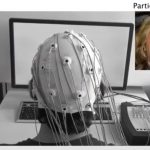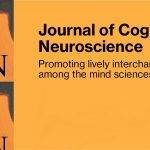CNS 2021 Paying attention is a fundamental brain process we all use every day. Whether keeping our eyes on the road while our cell phone rings or focusing on work while our kids yell in the background (for those of us working virtually during the pandemic), attentional control is key to healthy and successful living. […]
In Memoriam: Leslie G. Ungerleider
Dr. Leslie G. Ungerleider passed away on December 10, 2020. A towering scientific figure, she was Chief of the Laboratory for Brain and Cognition at the National Institute of Mental Health, where she was an NIH Distinguished Investigator. Leslie began as a functional anatomist, and was also a talented physiologist and cognitive neuroscientist. Her early […]
Moving the Body to Advance Cognition and Protect Against Dementia
CNS 2021: Q&A with Wendy Suzuki About 15 years ago, Wendy Suzuki was on a mission. She wanted to lose 25 pounds and began a regular gym and diet regimen. As she worked out more, she saw a big shift in her mood and memory. At the same time, her father suffered a sudden and […]
Maximizing the Number of Brains Studying the Brain
Q&A with Damien Fair, MacArthur “Genius Grant” Recipient Although the global pandemic has slowed his lab’s data collection to a halt, COVID-19 has nothing on cognitive neuroscientist Damien Fair. In the middle of the global health crisis, he moved from Oregon Health & Science University to the University of Minnesota, began the Masonic Institute for […]
Now Playing: Understanding How Socioeconomic Status Affects the Brain
Depression is twice as common at the lowest income levels than at the highest. People who are poor during childhood and become more affluent as adults continue to be at elevated risk. As presented in a symposium at CNS 2020 Virtual this past May, it appears that early life socioeconomic status (SES) influences brain development […]
Computers Generate Faces Based on Mental Maps
Cognitive neuroscientists have long debated about whether people have visual-like “pictures in the brain” that we activate when we think of them, or whether representations are more semantically organized in sets of features. So, for example, if asked to think of a blond person, will someone conjure in their “mind’s eye,” a typical blond person […]
In Memoriam: Arthur P. Shimamura
Professor Arthur (Art) Shimamura passed on October 6, 2020. A founder of the Cognitive Neuroscience Society, Art was a talented scientist, an award-winning teacher, and a respected leader. Throughout his career he pursued the highest ideals of science and service, and his highly-cited work has had a profound impact on our understanding of memory, amnesia […]
Getting to Know You: New Insights in Facial Recognition
The COVID-19 global pandemic is opening new questions for exploring how we get to know and recognize people in our lives. From the rise of digital representations of people — whether through avatars or teleconferences — to the use of masks for protection, we are taking in lots of different types of information beyond mere […]
The Next Phase of Publishing in Cognitive Neuroscience
Since its inception 31 years ago, the Journal of Cognitive Neuroscience (JoCN) has followed the latest science and trends in the field, becoming one of the preeminent journals publishing in the brain sciences. First led by Michael Gazzaniga, a founder of CNS, and then by Mark D’Esposito, who was Editor in Chief (EiC) for 17 […]
Do Visual Aids Assist Musical Training?
As a professional flutist, Ioanna Zioga has often wondered how people learn music. She herself has experienced many different musical training techniques from various musicians. “Some would draw figures on a whiteboard to visually represent the music; others would sing melodies; others would play the music themselves on the flute in order for me to […]











